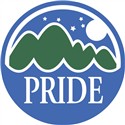
Pulaski County’s new glass recycling program will be featured
SOMERSET, KY — PRIDE will host a free Environmental Leadership and Solid Waste Management workshop on Tuesday, Aug. 22, 10 am – 4 pm ET, at the Hal Rogers Fire Training Center, 180 Oak Leaf Lane, Somerset.
Registration is required because space is limited. Registrants will be accepted on a first-come, first-serve basis. To register, please call PRIDE at 888.577.4339 (toll free) or send an email to .
“We designed the workshop for local government officials and solid waste professionals, but educators and citizens who care about the environment will benefit, as well,” said PRIDE’s Tammie Wilson.
“In fact, Family Resource and Youth Service Center workers can earn five training hours at the workshop,” she said. “Careers in solid waste are on the agenda, and we’ll cover recycling and composting projects that can be done with PRIDE grants in school and community settings.”
“We are excited that Danny Masten will tell us about the new glass recycling program that Pulaski County is launching soon, likely by the end of 2017,” Wilson said. “Glass recycling is rare in our region. We receive many calls from citizens who want to recycle glass but have no facility nearby.”
Greg Coker, The Cathedral Institute, will speak on environmental leadership, based on his recent book, Soft Skills Field Manual: The Unwritten Rules for Succeeding in the Workplace. All participants will receive a free copy of the book.
Beth Wilson, Pulaski County Horticulture Extension Agent, will explain why and how to implement composting at home or in larger scale settings, such as schools and businesses.
From the Kentucky Division of Waste Management, two speakers will outline the typical municipal solid waste landfill permitting process and the steps to become a certified solid waste operator. They will cover career paths in government and private industry in the waste management area.
This material is based upon work supported under a grant by the Utilities Programs, United States Department of Agriculture. Any opinions, findings, and conclusions or recommendations expressed in this material are solely the responsibility of the authors and do not necessarily represent the official views of the Utilities Program.
For more information, please visit www.kypride.org.